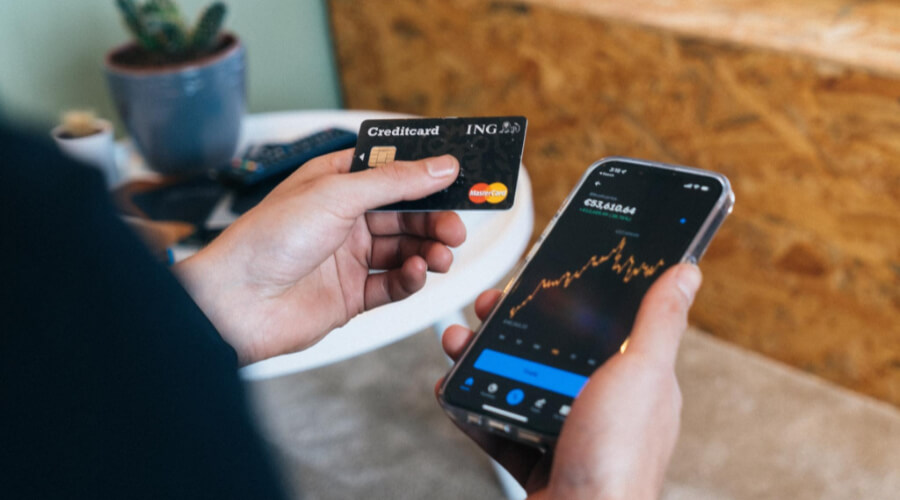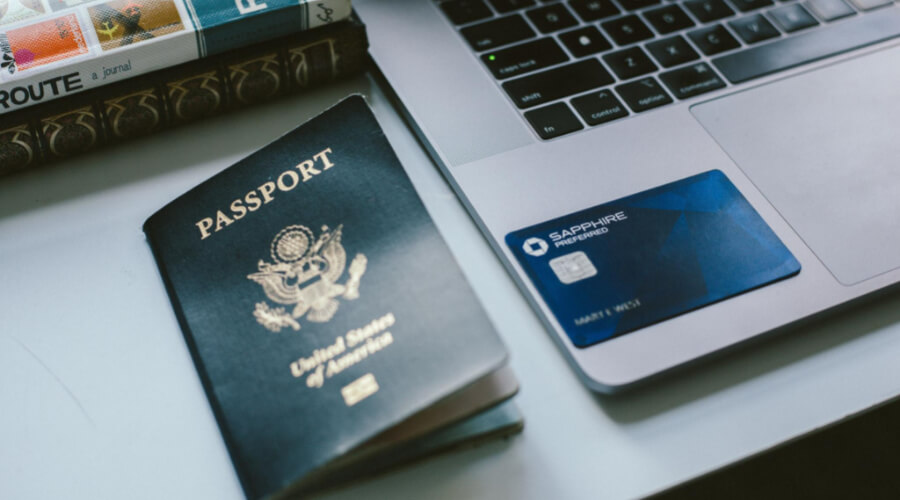It’s very difficult to catch credit card fraud because they use anonymous services and hard-code their IP addresses in malware. However, over the years many credit card fraudsters got caught because of lazy activities like hacking from the home, not changing the IP address, not using anonymous services, etc. Sometimes the carders share information on social media and using those information law and enforcement officials track down the carder.
Key Takeaways
- In the USA, there are more than 183 million credit card users therefore credit card scam is a very common felony in the USA
- Identity Theft is the most common type of credit card fraud
- USA ranked 1st as the country with the most credit card fraud incidents
- According to the Federal Law, the liability for credit card fraud is only $50
- American Express, Bank of America, Capital One, Chase, etc. bank offer offer $0 liability on unauthorized charges
Types Of Credit Card Fraud

When someone uses a person’s credit card to buy items or services without the permission of the cardholder then it is considered credit card fraud. There are different types of credit card fraud available like –
1. Stolen or Lost Credit Card
2. Stolen Credit Card Information
3. Identity Theft
Stolen Or Lost Credit Card
If a thief steals your wallet and finds the credit card then he can use it to make online or in-person transactions until you report and stop the card. There are chances you can misplace or drop your credit card and anyone can find it and then use it. This is also considered as credit card fraud and it is very dangerous because it may take a while for you to realize that you have lost your credit card and repost it. By the time you report it as missing; they might have already made substantial purchases. There are lots of stolen credit card reports that say the card was stolen from the mailbox. So if you are ordering a new credit card then you can choose the in-house delivery system for better security.
Stolen Credit Card Information
Many credit card fraudsters can use your credit card even though the card is still in your possession. The fraudsters only require your credit card’s number, security PIN, and the security code at the back of your card. With this information, the fraudsters can make online transactions and other purchases where only the credit card number is required. Fraudsters can collect information from many sources. If they can get the chance to hold your card temporarily then they can easily collect the information.
Identity Theft
This is another very popular type of credit card fraud. In this type of situation, a fraud illegally obtains information like your name, birthday, address, Social Security number, etc., and opens new credit cards under the genuine name of the cardholder. The fraud convinces your current credit card company that they’re you by providing valid information about you.
How High Are The Risks Of Credit Card Fraud?

Well, the risks are very high and in 2018, $24.26 billion was lost globally due to credit card fraud. The USA is in the 1st position as the country with the most credit card fraud incidents. In 2018, about 157,000 credit card fraud reports were filed in the USA which is thrice the number of reported incidents four years prior. According to Javelin Strategy and Research –
“The number of total identity fraud victims in the U.S., which partially includes credit card fraud victims, reached an all-time high of 1.57 million people in 2018, according to a recent study.”
The Federal Law About Credit Card Fraud Liability
Federal law limits consumers’ liability for credit card fraud to $50. So if you are a victim of fraud then most probably you’ll have no out-of-pocket responsibility. According to the federal Fair Credit Billing Act:
1. If your credit card — the physical card — is stolen and used by a crook, your issuer can hold you responsible for up to $50 in fraudulent charges. However, if you report the card stolen before any fraudulent charges are made, you have no liability.
2. If your card number is stolen but you’re still in possession of the card — which is usually the case in a data breach or hack — you’re not responsible for any fraudulent charges.
List Of Credit Card Issuers With Zero Fraud Liability
Here is a list of issuers who offer $0 liability on unauthorized charges:
1. American Express
2. Bank of America®
3. Barclaycard
4. Capital One
5. Chase
6. Citibank
7. Discover
8. PNC Bank
9. USAA
10. US Bank
11. Wells Fargo
Fraud Liability For Debit Cards
| If You Report | Your Maximum Loss |
| Before any unauthorized charges are made | $0 |
| Within 2 business days after you learn about the loss or theft | $50 |
| More than 2 business days after you learn about the loss or theft, but less than 60 calendar days after your statement is sent to you | $500 |
| More than 60 calendar days after your statement is sent to you | All the money is taken from your ATM/debit card account, and possibly more; for example, money in accounts linked to your debit account |
Federal Laws For Credit Card Fraud

The penalties for credit card fraud shall be fined not more than $10,000 and/or imprisoned not more than ten years. Here is a list of federal statutes addressing credit card fraud:
1. 15 U.S.C. § 1644 (federal fraudulent credit card)
2. 15 U.S.C. §1693n (federal fraudulent debit card)
15 U.S.C. § 1644 (federal fraudulent credit card)
(a) Use, Attempt, Or Conspiracy To Use The Card In Transaction Affecting Interstate Or Foreign Commerce
Whoever knowingly in a transaction affecting interstate or foreign commerce, uses or attempts or conspires to use any counterfeit, fictitious, altered, forged, lost, stolen, or fraudulently obtained credit card to obtain money, goods, services, or anything else of value which within any one-year period has a value aggregating $1,000 or more; or
(b) Transporting, Attempting, Or Conspiring To Transport Card In Interstate Commerce
Whoever, with unlawful or fraudulent intent, transports or attempts or conspires to transport in interstate or foreign commerce a counterfeit, fictitious, altered, forged, lost, stolen, or fraudulently obtained credit card knowing the same to be counterfeit, fictitious, altered, forged, lost, stolen, or fraudulently obtained; or
(c) Use Of Interstate Commerce To Sell Or Transport Card
Whoever, with unlawful or fraudulent intent, uses any instrumentality of interstate or foreign commerce to sell or transport a counterfeit, fictitious, altered, forged, lost, stolen, or fraudulently obtained credit card knowing the same to be counterfeit, fictitious, altered, forged, lost, stolen, or fraudulently obtained; or
(d) Receipt, Concealment, ETC., Of Goods Obtained By Use Of Card
Whoever knowingly receives, conceals, uses, or transports money, goods, services, or anything else of value (except tickets for interstate or foreign transportation) which (1) within any one-year period has a value aggregating $1,000 or more, (2) has moved in or is part of, or which constitutes interstate or foreign commerce, and (3) has been obtained with a counterfeit, fictitious, altered, forged, lost, stolen, or fraudulently obtained credit card; or
(e) Receipt, Concealment, ETC., Of Tickets For Interstate Or Foreign Transportation Obtained By Use Of Card
Whoever knowingly receives, conceals, uses, sells, or transports in interstate or foreign commerce one or more tickets for interstate or foreign transportation, which (1) within any one-year period have a value aggregating $500 or more, and (2) have been purchased or obtained with one or more counterfeit, fictitious, altered, forged, lost, stolen, or fraudulently obtained credit cards; or
(f) Furnishing Of Money, ETC., Through Use Of Card
Whoever in a transaction affecting interstate or foreign commerce furnishes money, property, services, or anything else of value, which within any one-year period has a value aggregating $1,000 or more, through the use of any counterfeit, fictitious, altered, forged, lost, stolen, or fraudulently obtained credit card knowing the same to be counterfeit, fictitious, altered, forged, lost, stolen, or fraudulently obtained – shall be fined not more than $10,000 or imprisoned not more than ten years, or both.
15 U.S.C. §1693n (federal fraudulent debit card)
(a) Violations Respecting Giving Of False Or Inaccurate Information, Failure To Provide Information, And Failure To Comply With Provisions Of This Subchapter
Whoever knowingly and willfully–
(1) gives false or inaccurate information or fails to provide information which he is required to disclose by this subchapter or any regulation issued thereunder; or
(2) Otherwise fails to comply with any provision of this subchapter; shall be fined not more than $5,000 or imprisoned not more than one year, or both.
(b) Violations Affecting Interstate Or Foreign Commerce
Whoever–
(1) knowingly, in a transaction affecting interstate or foreign commerce, uses or attempts or conspires to use any counterfeit, fictitious, altered, forged, lost, stolen, or fraudulently obtained debit instrument to obtain money, goods, services, or anything else of value which within any one-year period has a value aggregating $1,000 or more; or
(2) with unlawful or fraudulent intent, transports or attempts or conspires to transport in interstate or foreign commerce a counterfeit, fictitious, altered, forged, lost, stolen, or fraudulently obtained debit instrument knowing the same to be counterfeit, fictitious, altered, forged, lost, stolen, or fraudulently obtained; or
(3) with unlawful or fraudulent intent, uses any instrumentality of interstate or foreign commerce to sell or transport a counterfeit, fictitious, altered, forged, lost, stolen, or fraudulently obtained debit instrument knowing the same to be counterfeit, fictitious, altered, forged, lost, stolen, or fraudulently obtained; or
(4) knowingly receives, conceals, uses, or transports money, goods, services, or anything else of value (except tickets for interstate or foreign transportation) which (A) within any one-year period has a value aggregating $1,000 or more, (B) has moved in or is part of, or which constitutes interstate or foreign commerce, and (C) has been obtained with a counterfeit, fictitious, altered, forged, lost, stolen, or fraudulently obtained debit instrument; or
(5) knowingly receives, conceals, uses, sells, or transports in interstate or foreign commerce one or more tickets for interstate or foreign transportation, which (A) within any one-year period have a value aggregating $500 or more, and (B) have been purchased or obtained with one or more counterfeit, fictitious, altered, forged, lost, stolen, or fraudulently obtained debit instrument; or
(6) in a transaction affecting interstate or foreign commerce, furnishes money, property, services, or anything else of value, which within any one-year period has a value aggregating $1,000 or more, through the use of any counterfeit, fictitious, altered, forged, lost, stolen, or fraudulently obtained debit instrument knowing the same to be counterfeit, fictitious, altered, forged, lost, stolen, or fraudulently obtained – shall be fined not more than $10,000 or imprisoned not more than ten years, or both.
(c) “Debit Instrument” Defined
As used in this section, the term “debt instrument” means a card, code, or another device, other than a check, draft, or similar paper instrument, by the use of which a person may initiate an electronic fund transfer.
References:
1. https://www.experian.com/blogs/ask-experian/how-do-credit-card-companies-investigate-fraud/
2. https://www.fbi.gov/scams-and-safety/common-scams-and-crimes/credit-card-fraud
Last Updated on October 8, 2022 by Magalie D.

Magalie D. is a Diploma holder in Public Administration & Management from McGill University of Canada. She shares management tips here in MGTBlog when she has nothing to do and gets some free time after working in a multinational company at Toronto.





